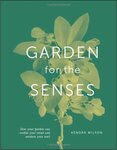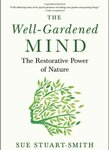

I’m sure the neighbors hate us. We moved into our house eight years ago and yes, we keep the lawn neat and tidy, and when a storm takes out a fence post, we hastily re-erect it. We attend to our trees’ health promptly.
So, okay, we’re not the worst house on the block. We’re not exactly an eyesore. But I’ll admit to being embarrassed by our garden—or lack thereof. We are in desperate need of some landscaping.
I called the person I always call in an emergency, the person who is an expert in so many things, but who also happens to head the landscape committee of her condo association.
I called my mother.
She is delighted to help, but she does live an hour and a half away and so many of our discussions take place over the phone. Over the past couple of years, we have gone over and over plant options, names and locations, we have hemmed and hawed about a plan of attack, steps to take. Progress has been slow, mostly because I get overwhelmed with the size of the project.
Last spring, reviewing plant options for a plan that now exists on an oversized piece of paper, my mother said, “You know, I don’t really know what I’m talking about.”
Huh? She calls plants by their scientific names. Her condo association has 66 units and she has overseen the landscaping of their 22 acres of property for the past three years. She’s been getting her hands dirty in various gardens for over 40 years.
At what point does anyone feel like they know what they’re doing when it comes to gardening?
Maybe never, which is why any gardener, novice or expert, can appreciate a good gardening book.
As a writer and non-expert myself, I am drawn to the beautiful ones, books like The Secret Language of Flowers: Notes on the Hidden Meanings of the Louvre’s Flowers by Jean-Michel Othoniel, that comes in a gilded package and contains color illustrations with gorgeous and artistic descriptions, a book that is as much art history as it is gardening. Similarly, the new The Complete Language of Flowers: A Definitive and Illustrated History, a pocket-sized, beautifully illustrated book makes a perfect gift and has arrived just in time for Mother’s Day.
But these celebratory gardening books are probably not what you think of when the topic of gardening books arises. It’s the practical, how-to books for gardeners and gardens of all types—vegetable, herb, flower, native plants, rewilding, landscape design, houseplants. In the shop right now, some of these include Plant, Grow, Harvest, Repeat, a book focused on succession planting; Gaia’s Garden: A Guide to Home-Scale Permaculture; The First-Time Gardener: Raised Bed Gardening; Old Farmer’s Almanac Flower Gardener’s Handbook; and RHS Gardening School: Everything You Need to Know to Garden Like a Professional. We’re a small shop and we can devote only so much space to gardening books, so we handpick a little on each topic, a few for each type of gardener—novice to professional—and a mix of classics and newbies.
One trend I’m seeing is the blend of gardening book and cookbook—like The Healing Garden: Cultivating and Handcrafting Herbal Remedies by Juliet Blankspoor, which has information on how to plan your garden, which medicinal plants to know about, how to grow them, and how to prepare them—with 70 recipes included.
A different type of practical book is the philosophical gardening book. The Well-Gardened Mind: The Restorative Power of Nature by Sue Stuart-Smith, a psychiatrist and gardener, explores the mental health benefits of gardening. Garden for the Senses: How Your Garden Can Soothe Your Mind and Awaken Your Soul by Kendra Wilson is a slightly more instructive version of Stuart-Smith’s book, with advice on which plants will nourish your mental and physical well-being, based on which sensory experience you’d like to have.
For parents and grandparents, encouraging a love of gardening and the outdoors might be top of mind. For those, I might recommend Kate Messner’s Up in the Garden and Down in the Dirt, a picture book that shows the secrets of the garden over the course of a year, or the new The Garden We Share by Zoe Tucker and illustrated by Julianna Swaney, a story about a garden and friendship and community and hope.
Maybe, like me, you turn to fiction when you want to learn about something. The two novels I’ll be reading to up my gardening game are The Seed Keeper by Diane Wilson, about a Dahktoa woman and gardener who confronts her past and learns the strengths women and the land share, and The Shell Seekers by Rosamunde Pilcher, a family saga that begins with a woman who would rather just spend her days in the garden and leave the rest of the world behind.
Unsurprisingly, real-life intrudes, but I like that gardening, like reading, allows us to escape, at least for a little while.
Hannah Harlow is owner of The Book Shop, an independent bookstore in Beverly Farms. Harlow writes biweekly recommendations for us. See more of what she recommends reading at thecricket.com.